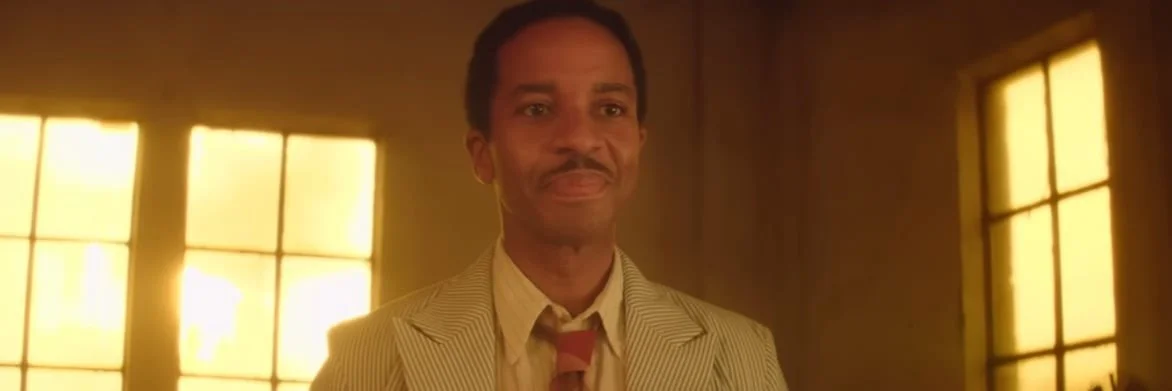Neil Armstrong's story is adapted to the screen by director Damien Chazelleand talented scribe Josh Singer in "First Man" -- a mechanical, altogether flat attempt to recreate the events that led to Armstrong's historic trip to the moon.
The 33-year-old Chazelle, already known for his excellent work in "Whiplash" and "La La Land," stalls to find the same excitement and intensity of Armstrong's journey in "First Man." Why? Because he is restrained by adapting the story of a person that, quite frankly, was just not that interesting to begin with. Sure, Armstrong was the first man to step foot on the moon and the film's final stretch, delving into that historic voyage to space, is incredibly shot and ultimately very moving -- however, the getting there is rather dull and consists of mostly trial and error efforts from Armstrong and his NASA crew to prepare for the lunar journey.
As you watch "First Man" you never have the excitement or wonderment that it must have felt like in 1968. In fact, unless you've been living under a rock, the fact that we already know Armstrong survived the grueling adventure in space lessens the tension further. One wonders why Chazelle decided to make a movie out of this true story given that, despite the excitement from back in the day, our voyage to the moon hasn't lead to much discovery, even 50 years later, and that billions of tax payers dollars were spent just for the sake of beating the USSR in a wit-filled game of patriotic showmanship.
Throwing us into the cockpit with Armstrong (played with deadpan dullness here by Ryan Gosling), Chazelle uses shaky handheld camera and frenetic editing to try and envelop us into the cagey metal prototypes these brave men had to fit into during the grueling pre-mission tests. At home, Armstrong and wife Janet (Claire Foy) mourn the loss of their baby girl to cancer, and Chazelle seems to indicate this gave Armstrong an extra level of fearlessness, but also recklessness, to go on with the deadly mission.
Eventually Buzz Aldrin (Corey Stoll) and Mike Collins (Lukas Haas) join the Apollo 11 crew, and, well, you know the rest. Singer (who won an Oscar for writing "Spotlight") adapts James R. Hansen's Armstrong bio, but can't seem to find an enticing way to depict the American hero, whom, by all accounts, was a rather stilted, to-himself individual.
If Chazelle found a stylistic visual palette for his first two films, the way he shoots "First Man," with a rather odd amalgam of handheld cameras, is clearly inspired by the cinema-verite movement that was booming around the time of Apollo 11. If his intent is to produce visceral realism, he fails.
In fact, if there's any reason to watch this movie it's for Claire Foy's beautifully subtle performance as Armstrong's wife -- her beautiful buggy eyes tell a world of emotions in a single stare; Foy, known for her work as the Queen in "The Crown," is a star-in-the-making and, despite the conventional tropes of her role, manages to break through the stereotypes by delivering a touchingly beautiful depiction of Janet Shearon Armstrong.
Chazelle's failure to launch "First Man" into orbit counts as a rather devastating disappointment. It turns out to be a misguided decision to tackle the Armstrong story when his talents could have been put to better use with more original concepts. As "First Man" goes about its needlessly lengthy 140 minutes, you start to realize that this is essentially a film directed by an overgrown boy that's been given the biggest toy set imaginable.
It's only in the film's final stretch that you are reminded of Chazelle's talents. A 20-minute journey to the moon, shot with IMAX cameras, captures the wonderment of a mission that changed the world. The famous words uttered by Armstrong -- "That's one small step for [a] man, one giant leap for mankind." --- invoke a time period when anything felt possible, but for most of the "First Man," unlike those aforementioned final moving moments, you just don't feel like any leap has actually been taken. [C]





